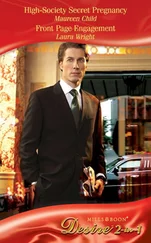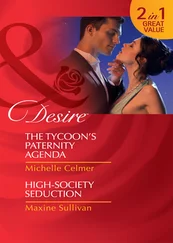The captain sent for Emily, and questioned her: but she added nothing to that first, crucial burst of confidence to the stewardess. She seemed struck dumb — with terror, or something: at least, he could get nothing out of her. So he wisely let her alone. She would probably tell her story in her own time: to her new friend, perhaps. But this she did not do. She would not talk about the schooner, or the pirates, or anything concerning them: what she wanted was to listen, to drink in all she could learn about England, where they were really going at last — that wonderfully exotic, romantic place.
Louisa Dawson was quite a wise young person for her years. She saw that Emily did not want to talk about the horrors she had been through: but considered it far better that she should be made to talk than that she should brood over them in secret. So when the days passed and no confidences came, she set herself to draw the child out. She had, as everybody has, a pretty clear idea in her own head of what life is like in a pirate vessel. That these little innocents should have come through it alive was miraculous, like the three Hebrews in the fiery furnace.
“Where used you to live when you were on the schooner?” she asked Emily one day suddenly.
“Oh, in the hold,” said Emily nonchalantly. “Is that your Great-uncle Vaughan , did you say?”
In the hold. She might have known it. Chained, probably, down there in the darkness like blacks, with rats running over them, fed on bread and water.
“Were you very frightened when there was a battle going on? Did you hear them fighting over your head?”
Emily looked at her with her gentle stare: but kept silence.
Louisa Dawson was very wise in thus trying to ease the load on the child’s mind. But also she was consumed with curiosity. It exasperated her that Emily would not talk.
There were two questions which she particularly wanted to ask. One, however, seemed insuperably difficult of approach. The other she could not contain.
“Listen, darling,” she said, wrapping her arms round Emily. “Did you ever actually see any one killed?”
Emily stiffened palpably. “Oh no,” she said. “Why should we?”
“Didn’t you ever even see a body?” she went on: “A dead one?”
“No,” said Emily, “there weren’t any.” She seemed to meditate a while. “There weren’t many,” she corrected.
“You poor, poor little thing,” said Miss Dawson, stroking her forehead.
But though Emily was slow to talk, Edward was not. Suggestion was hardly necessary. He soon saw what he was expected to say. It was also what he wanted to say. All these rehearsals with Harry, these springings into the main rigging, these stormings of the galley…they had seemed real enough at the time. Now, he had soon no doubt about them at all. And Harry backed him up.
It was wonderful for Edward that every one seemed ready to believe what he said. Those who came to him for tales of bloodshed were not sent empty away.
Nor did Rachel contradict him. The pirates were wicked — deadly wicked, as she had good reason to know. So they had probably done all Edward said: probably when she was not looking.
Miss Dawson did not always press Emily like this: she had too much sense. She spent a good deal of her time simply in tying more firmly the knots of the child’s passion for her.
She was ready enough to tell her about England. But how strange it seemed that these humdrum narrations should interest any one who had seen such romantic, terrible things as Emily had!
She told her all about London, where the traffic was so thick things could hardly pass, where things drove by all day, as if the supply of them would never come to an end. She tried also to describe trains, but Emily could not see them, somehow: all she could envisage was a steamer like this one, only going on land — but she knew that was not right.
What a wonderful person her Miss Dawson was! What marvels she had seen! Emily had again the feeling she had in the schooner’s cabin: how time had slipped by, been wasted. Now she would be eleven in a few months: a great age: and in all that long life, how little of interest or significance had happened to her! There was her Earthquake, of course, and she had slept with an alligator: but what were these compared with the experiences of Miss Dawson, who knew London so well it hardly seemed any longer wonderful to her, who could not even count the number of times she had traveled in a train?
Her Earthquake…it was a great possession. Dared she tell Miss Dawson about it? Was it possible that it would raise her a little in Miss Dawson’s esteem, show that even she, little Emily, had had experiences? But she never dared. Suppose that to Miss Dawson earthquakes were as familiar as railway trains: the fiasco would be unbearable. As for the alligator, Miss Dawson had told Harold to take it away as if it was a worm.
Sometimes Miss Dawson sat silently fondling Emily, looking now at her, now at the other children at play. How difficult it was to imagine that these happy-looking creatures had been, for months together, in hourly danger of their lives! Why had they not died of fright? She was sure that she would have. Or at least gone stark, staring, raving mad?
She had always wondered how people survived even a moment of danger without dropping dead with fear: but months and months…and children…. Her head could not swallow it.
As for that other question, how dearly she would have liked to ask it, if only she could have devised a formula delicate enough.
Meanwhile Emily’s passion for her was nearing its crisis; and one day this was provoked. Miss Dawson kissed Emily three times, and told her in future to call her Lulu. Emily jumped as if shot. Call this goddess by her Christian name? She burnt a glowing vermilion at the very thought. The Christian names of all grown-ups were sacred: something never to be uttered by childish lips: to do so, the most blasphemous disrespect.
For Miss Dawson to tell her to do so was as embarrassing as if she had seen written up in church,
PLEASE SPIT.
Of course, if Miss Dawson told her to call her Lulu, at least she must not call her Miss Dawson any more. But say…the Other Word aloud, her lips refused.
And so for some time, by elaborate subterfuges, she managed to avoid calling her anything at all. But the difficulty of this increased in geometrical progression: it began to render all intercourse an intolerable strain. Before long she was avoiding Miss Dawson.
Miss Dawson was terribly wounded: what could she have done to offend this strange child? (“Little Fairygirl,” she used to call her.) The darling had seemed so fond of her, but now…
So Miss Dawson used to follow her about the ship with hurt eyes, and Emily used to escape from her with scarlet cheeks. They had never had a real talk, heart to heart, again, by the time the steamer reached England.
II
When the steamer took in her pilot, you may imagine that her news traveled ashore; and also, that it quickly reached the Times newspaper.
Mr. and Mrs. Bas-Thornton, after the disaster, unable to bear Jamaica any longer, had sold Ferndale for a song and traveled straight back to England, where Mr. Thornton soon got posts as London dramatic critic to various Colonial newspapers, and manipulated rather remote influences at the Admiralty in the hope of getting a punitive expedition sent against the whole island of Cuba. It was thus the Times which, in its quiet way, broke the news to them, the very morning that the steamer docked at Tilbury. She was a long time doing it, owing to the fog, out of which the gigantic noises of dockland reverberated unintelligibly. Voices shouted things from the quays. Bells ting-a-linged. The children welded themselves into a compact mass facing outwards, an improvised Argus determined to miss nothing whatever. But they could not gather really what anything was about, much less everything.
Читать дальше












